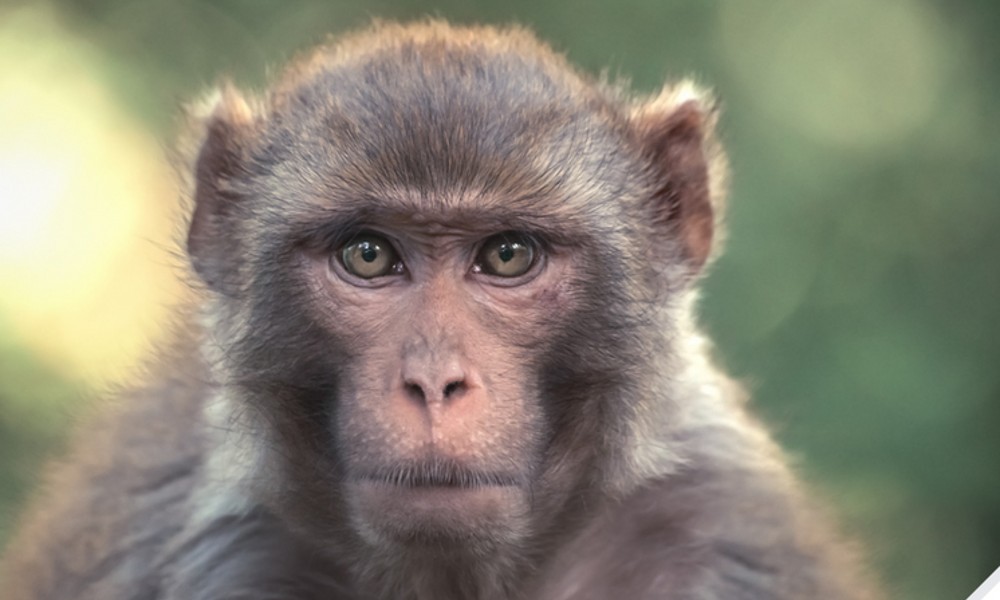Macaques in Indonesia are being massively and cruelly exploited for biomedical research, street performance and social media views and profits, and through the “pet” trade, according to a new report from the Asia for Animals (AfA) Macaque Coalition.
The coalition formed in 2020, after animal advocates and primate experts noted numerous ways the vulnerable monkeys suffer at human hands.
The report, released in October, notes two macaque species recently uplisted to “Endangered” status by the International Union for the Conservation of Nature (IUCN) — the long-tailed macaque (Macaca fascicularis) and Southern pig-tailed macaque (Macaca nemestrina) — have no protections under Indonesia’s wildlife protection legislation.
While the intelligent primates’ presence near human settlements has led some local residents and officials to perceive them as abundant, the AfA report notes macaque populations have severely dwindled. Meanwhile demand for the monkeys — including as pets, performers, and research subjects — has increased exponentially, putting pressure on wild populations that are cruelly captured and sold and relegating captive monkeys to lifetimes of suffering in cruel and inadequate settings.
Expanding human populations into former macaque territories also has increased negative human-macaque interactions, leading to the labeling of the sentient animals as “pests” and sanctioned mass killings.
Some of the ways macaques suffer, according to the report:
- Adult pig-tailed macaques are being hunted for meat and their body parts sold for “medicine,” while their captured infants often are sold as pets and endure filmed cruelty posted to social media platforms for profit
- Wild long-tailed macaques are being cruelly captured — with poachers trapping them in nets, pinning and grabbing them by their necks and tails, and stuffing them into sacks and crates — and exported for biomedical research experiments around the world, including toxicity testing — in which animals are poisoned with chemicals or hazardous substances to unreliably “test” safety of products for humans
- Infant macaques kept as “pets” experience lasting trauma after being forcibly separated from their troops and confined — often in isolated, small and barren cages that don’t allow them to express normal behaviors such as travel or foraging, and often without adequate nutrition or veterinary care.
- Macaques sold openly in live animal markets suffer in unsanitary conditions that can contribute to the emergence and transmission of zoonotic diseases
In addition to long-standing threats from deforestation and other habitat loss, macaques also are facing evolving human-caused threats in the form of “monkey hatred” — which the coalition defines as usually young, captive monkeys kept in pet-like settings being cruelly “teased” or outright tortured for videos posted to social media platforms.
Meanwhile, other cruel practices that should have ended due to regional bans are still continuing — including Topeng Monyet, a form of street theater in which masked monkeys, often chained by the necks, beg for money from tourists or perform unnatural stunts like riding bicycles, according to the report.
The report notes that macaques, as highly intelligent animals – who form strong family bonds, grieve the loss of troop members, and can plan and problem solve — suffer horrifically in these widespread, exploitative and cruel conditions.
“Indonesia has a choice,” the Coalition wrote. “The authors of this report highly recommend and deeply hope that the choice will be made to protect these two species in Indonesia and that they will receive the focus and conservation efforts that they deserve.”
Solutions to immediately improve the conditions for Indonesia’s macaques include establishing protections under the National Wildlife Conservation Law and zero capture quotas, adding penalties to existing bans on performing monkeys, consistent enforcement, and government collaboration with nonprofits that can help rescue and rehabilitate suffering monkeys.
Educational campaigns to shift people’s perceptions of macaques as “pests,” strengthened social media policies regarding abusive monkey content, and habitat protection also would help with macaque protection and conservation, the coalition notes.
The Coalition includes more than 20 nonprofit organizations, including Action for Primates, Animal Concerns Research & Education Society, Animal Friends Jogja, Animal Protection Denmark, Animals Asia Foundation, Animals Don’t Speak Human, Born Free Foundation, Federation of Indian Animal Protection Organisations, Four Paws International, Global Animal Welfare, International Primate Protection League, Jakarta Animal Aid Network, People for the Ethical Treatment of Animals, Society for the Prevention of Cruelty to Animals Hong Kong and Wild Welfare.
You can access the full report on the AfA’s Macaque Coalition website or here. If you haven’t already, please also sign LFT’s petition urging authorities to protect these precious animals.
SIGN: Stop Macaques From Being Terrorized in Angkor Wat for Social Media Views


